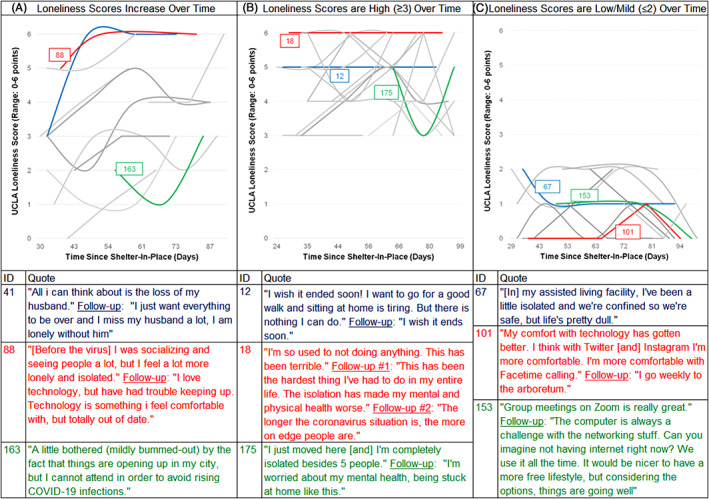Figure 1.

University of California, Los Angeles (UCLA) Loneliness Score trajectories among those who attributed worsened loneliness to COVID‐19 precautions. Participants included in the figure reported worsened loneliness due to the COVID‐19 pandemic at least once during the study period and had at least two interviews (n = 63). Participants were included in panels (A) “Loneliness scores increase” (n = 18) if UCLA Loneliness Scale scores increased on average in follow‐up interviews compared with baseline; (B) “Loneliness scores remain high” (n = 27) if all UCLA scores were 3 or higher; and (C) “Loneliness scores remain low” (n = 13) if all UCLA scores were 2 or lower. Worsened loneliness due to COVID‐19 was determined by asking, “Because of the recent coronavirus outbreak (in the last 2 weeks), are your feelings of lack of companionship, being left out, or isolated: (Responses: Worse, Better, the Same).” The severity of loneliness over time was then determined using the UCLA three‐item loneliness scale (range = 0–6 points), where 3 or more points corresponds with “high” loneliness. Colored lines show the loneliness trajectory corresponding with the participants' quotes.
